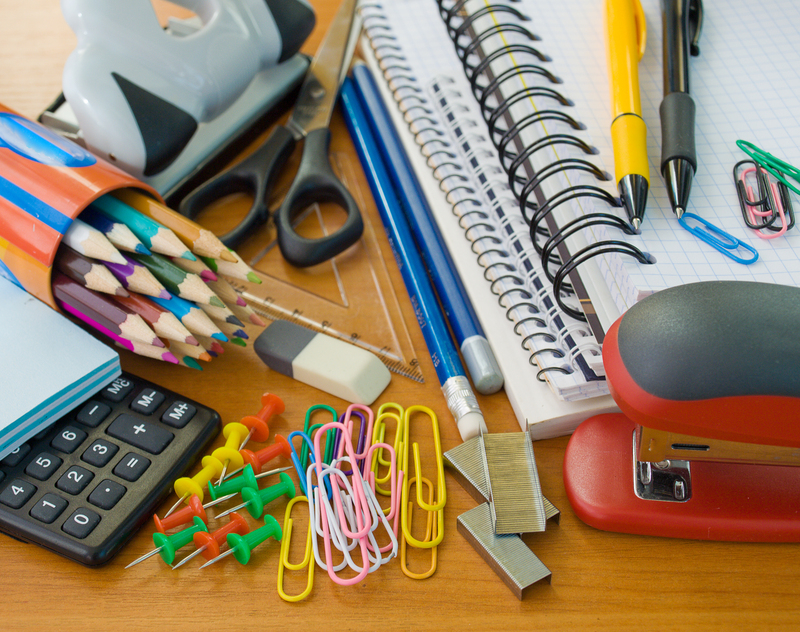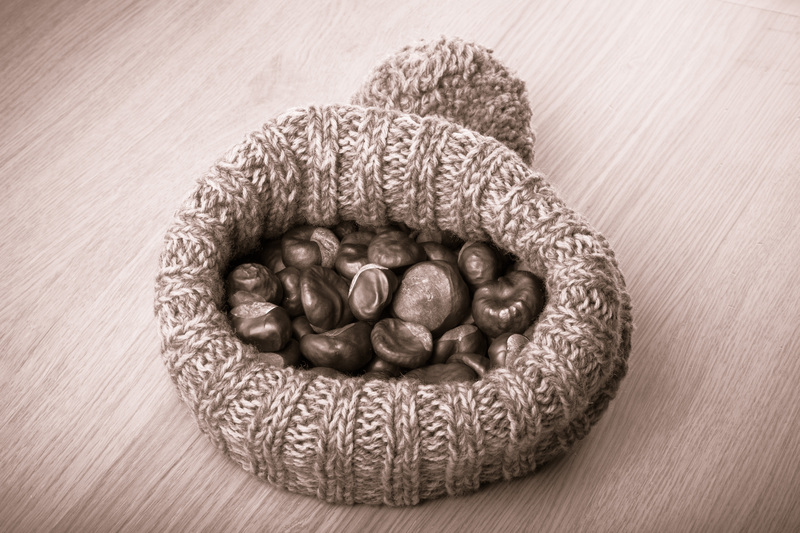Turning Your Old Cookware Into Recyclable Materials: A Complete Guide
Cookware makes our kitchens functional and reflects our culinary passions. Over time, pots, pans, and bakeware become worn, outdated, or simply surplus to requirements. But instead of letting those old frying pans or battered baking trays end up in landfill, you can explore the myriad possibilities of turning your old cookware into recyclable materials. This approach not only reduces waste but gives your kitchen items a new life and supports broader environmental goals.

Why Recycle Your Old Cookware?
Recycling old cookware isn't just a trendy practice--it's a vital step towards conserving resources, saving money, and lessening your carbon footprint. Each year, millions of pounds of metal, ceramic, and glass cookware are thrown away, taking centuries to decompose in landfills.
- Environmental Impact: Cookware materials like aluminum and stainless steel are finite resources. Recycling them conserves raw materials and reduces pollution.
- Energy Conservation: Producing new metals requires significant energy, while recycling old pots and pans uses far less.
- Reducing Landfill Waste: Keeping bulky items out of landfills helps manage our growing waste crisis.
- Economic Benefits: Recycled metals and materials often feed directly back into manufacturing chains, reducing costs for producers and consumers.
Environmental Benefits of Recycling Old Cookware
Turning outdated pots and pans into recyclable materials does wonders for the environment. When you recycle cookware made of aluminum, stainless steel, or cast iron, you not only prevent them from languishing in landfills but also help reduce mining activities, greenhouse gas emissions, and water pollution associated with raw material extraction.
*Did you know? Recycling aluminum saves up to 95% of the energy needed to create it from raw ore*!
What Types of Cookware Can Be Recycled?
Not all cookware is created equal, but most kitchen items can find another purpose if you know where to look. Here's a breakdown of common cookware materials and their recycling potential:
- Aluminum: Many modern pans and baking trays are made from aluminum, which is highly recyclable.
- Stainless Steel: Another recyclable favorite--stainless steel is sought after at recycling centers and scrap yards.
- Cast Iron: Thick and heavy, cast iron cookware can be recycled or restored.
- Copper: Though less common, copper pots are valuable recyclable materials, but often require special handling.
- Ceramic and Glass: Oven dishes and mugs may be accepted at facilities specializing in ceramics or glass, but not all municipal recycling programs process them.
- Non-Stick Cookware: Teflon-coated pots pose recycling challenges. It's essential to check with local facilities about their capabilities.
Can You Throw Old Cookware in the Recycling Bin?
*The simple answer is usually no*. Residential curbside recycling rarely accepts large metal items or cookware because they can't be processed like cans or bottles. Instead, special drop-off centers, metal scrap yards, or specific household waste programs should be used.
Step-by-Step Guide: Turning Old Cookware Into Recyclable Materials
Properly recycling or repurposing your decades-old frying pans or battered saucepots involves a few essential steps. Here's a systematic approach to make the most eco-friendly choice.
1. Assess Your Cookware's Condition
- Is it still usable? Consider donating gently-used items to charities, shelters, or secondhand shops.
- Is it damaged, warped, or has worn-out coatings? If so, recycling is most appropriate.
2. Identify Material Types
Understanding what your cookware is made from is key. Look for stamps or icons indicating metal content or manufacturers' recycling guidelines.
- Magnet test: If a magnet sticks, the cookware is likely steel or cast iron (both recyclable).
- Shiny, lightweight, and rust-resistant items tend to be aluminum.
3. Prepare Cookware for Recycling
- Remove Non-Metal Parts: Unscrew and detach plastic, silicone, or wooden handles. These parts can contaminate metal recycling streams and should be disposed of separately.
- Clean Thoroughly: While you don't need to eliminate every stain, remove food residue and grease with a scrub or dishwasher.
- Bundle Similar Metals: If possible, group aluminum pans separately from steel or cast iron items.
4. Locate the Right Recycling Facility
Not all recycling centers are equipped to handle cookware, so research local services using search terms like "recycle old pots and pans near me" or " dispose of used cookware environmentally."
- Municipal Drop-off Stations: Some municipalities offer "scrap metal" or "household hardware" recycling days.
- Metal Scrap Yards: Scrap dealers often accept cookware and may even pay for valuable metals like copper or aluminum.
- Specialized Recyclers: Certain companies and eco-parks focus on hard-to-recycle items and can accept non-stick or ceramic-coated pans.
- Retailer Take-back Programs: Some kitchenware brands or large retail chains offer recycling bins or trade-in programs for old cookware when you buy new pieces.
Tips for Recycling Non-Stick and Coated Cookware
Non-stick coated pans (like Teflon) usually require specialized facilities because their synthetic coatings can contaminate metal recycling processes. Remove as much of the coating as possible, or contact the manufacturer about suggested recycling methods.
Don't Forget Ceramic and Glass!
Oven-safe glass and ceramic dishes are tougher to recycle due to high firing temperatures and additives. However, some recycling centers accept them as construction aggregate or for other uses. Call ahead to confirm.
Creative Ways to Repurpose Old Cookware Before Recycling
If you're feeling resourceful or crafty, old cookware can be transformed ingeniously into household tools, art, planters, and storage solutions.
- Garden Planters: Drill drainage holes in old pots or saucepans to make quirky plant pots for herbs or flowers.
- Serving Trays: Vintage baking pans can be upcycled into serving trays or catch-alls for keys and mail.
- Wall Art: Old cast iron pans or colorful lids make unique wall art, add character to kitchens, or even serve as message boards.
- Tool Holders: Turn large pots into rustic holders for garden or kitchen utensils.
- Bird Feeders: Create outdoor bird feeders from old bowls or skillets.
Donation: Give Your Old Cookware Another Life
If your cookware is still functional, consider donating it. Thrift stores, shelters, and community kitchens often need such items and can extend their useful life while supporting those in need.
- Check for Cleanliness: Items should be clean, odor-free, and free from significant damage.
- Bundle Sets Together: Donate full sets when possible for greater usefulness.
Circular Economy and Sustainable Kitchen Practices
Transitioning from throwaway habits to circular economy practices in your kitchen has far-reaching benefits. When you turn old cookware into recyclable materials, you're feeding valuable resources back into the production chain, reducing the demand for new mining, and embodying the ethos of reduce, reuse, recycle.
- Choose Durable Cookware: Invest in long-lasting pans to minimize replacements.
- Repair When Possible: Restore cast iron, replace handles, or re-coat items rather than discarding them.

Common Questions About Recycling Old Cookware
Can I recycle cookware with plastic handles?
Most recycling facilities require you to remove non-metallic parts like plastic, wood, or silicone. Detach these before recycling.
Are Teflon-coated pans recyclable?
These are best handled by specialized recyclers. Check with your local waste facility, or inquire with the manufacturer regarding recycling take-back programs.
Is donating cookware better than recycling?
If your items are usable, donation extends their life and prevents new products from being manufactured--an even more sustainable option than recycling.
Can I sell my old cookware for scrap?
Yes, especially metal pans made of aluminum, copper, stainless steel, or cast iron. Visit your nearest scrap yard for appraisal.
How do I find a scrap metal recycling facility?
Search online for "scrap metal recycling near me" or check your municipality's waste management website.
Conclusion: Make Cookware Recycling Part of Your Kitchen Routine
By making a conscious effort to recycle or repurpose your old pots, pans, and bakeware, you're taking action for both the planet and your community. Whether it's through responsible recycling drop-off, creative upcycling, or thoughtful donation, turning your old cookware into recyclable materials significantly reduces waste and maximizes resources.
Next time you upgrade your kitchen essentials, don't let your old cookware gather dust or end up in the trash! Instead, become part of the sustainable movement and give those retired saucepans and skillets a second life.
Further Reading and Resources
Let your kitchen be a place not only of culinary creativity but also of environmental responsibility by recycling old cookware and supporting the circular economy!
